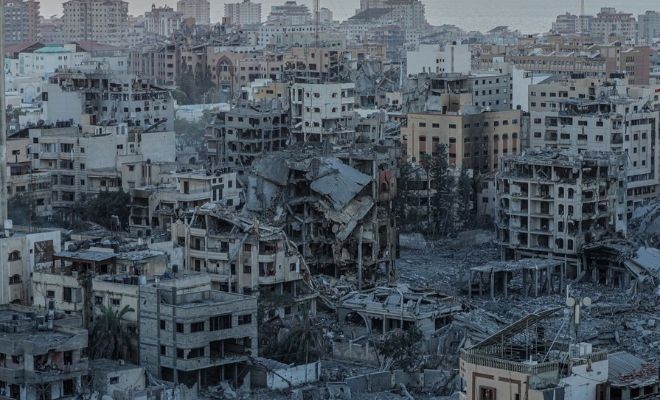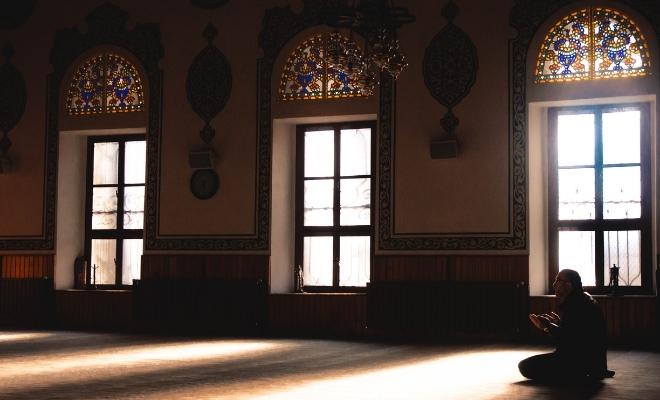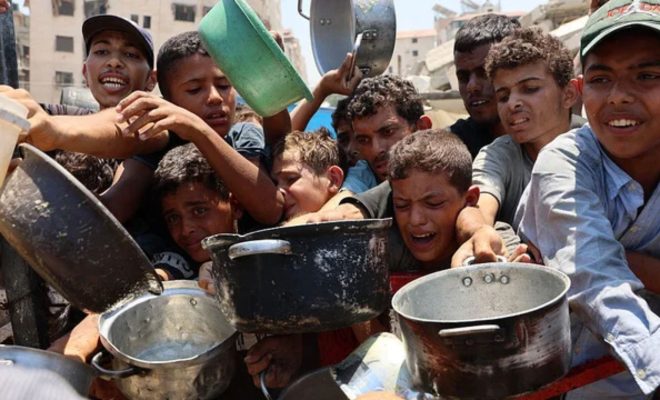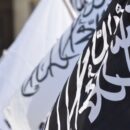Four More Years
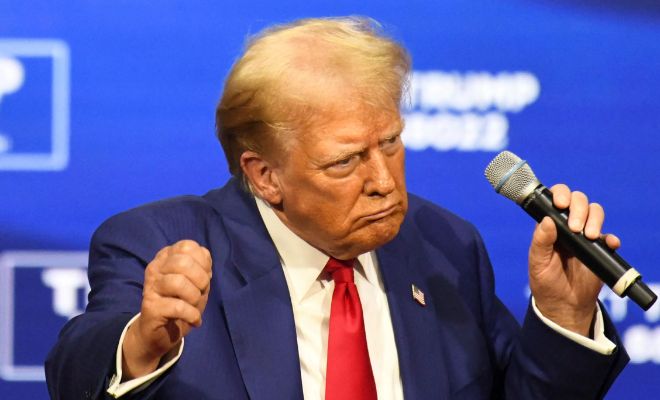
On November 5th, 2024, millions of Americans cast their ballots to determine who would capture the presidency of the United States. Against everything pollsters, pundits and forecasters predicted, Trump’s Republican party managed to gain a historic victory against Kamala Harris and the Democratic Party.
He not only dominated Harris within the electoral college, but he also won the popular vote – with almost 3-million more people choosing him as America’s 47th President. The Republican Party also took control of the Senate, and have a great chance of taking a majority in the Congress as well.
There will be a lot of discussion as to why Trump won the elections. Kamala Harris was uniquely weak, being tied to Biden’s failing economy, his deteriorating mental health, and shameless support for the Zionist entity’s ethnic cleansing in Palestine. She was both unwilling and unable to distance herself from Biden, and being the last-minute choice of a failing party, was unable to articulate an alternative vision for her country.
For many, Trump represents a way to demonstrate hostility towards an economic and social elite that seemed further and further removed from any concern or interest in the problems facing everyday Americans.
A more important discussion, especially for Muslims, is who Trump exactly is, and what his victory means for the Muslim world. In a time of increased Zionist aggression in the Levant, coupled with rising xenophobia in much of the Western world, it is crucial for us to take stock of what the head of the global superpower stands for, and how we should respond to it.
Trump’s Vision
While Trump may have represented a “protest vote” of sorts for many who were rightfully disgusted and disillusioned by the Democratic party stance, Trump is not an empty vessel. He presents himself as a political outsider who will return America to a past where its borders were much more protected, its government smaller in size, and it was less interested in using its military might to intervene in other countries.
It is this last position – the perception that Trump might blunt the US war machine and withdraw from the multiple fronts across the Muslim world in which the US operates – that is most interesting to the Ummah. After all, especially since the “War on Terror,” we have seen the Muslim lands ravaged by the colonial powers, with the US at the forefront.
Hundreds of thousands of people from Iraq, Syria, Yemen, Libya, and Somalia have seen the complete destruction of their homes, societies and even lives at the hands of this global order. And we all know that the Zionist state relies on the US to achieve its genocidal aims. This explains the interest in the perception of seeing Trump as a peacemaker. His previous record of intensifying drone strikes across the Muslim world, his decision to move the US embassy to
Jerusalem, and his insistence on the people of Palestine agreeing to the terms of the Abraham Accords, giving up most of the land and all of their sovereignty, was hardly benevolent.
However, what cannot be ignored is his current actions, which remove any hope of him being a leader dedicated to peace. As Ronald Reagan had said: “Personnel is policy,” meaning whom Trump chooses now will reflect his policy choices. So, who has Trump selected in his cabinet?
The Usual Suspects
Trump has appointed Pete Hegseth as Defense Secretary. Hegseth is a veteran who has served in Afghanistan, as well as in Guantanamo Bay, where Muslim detainees were subjected to torture. He is a firm supporter of the “War on Terror” and used his fame as a Fox News anchor to get Trump to pardon US soldiers guilty of killing unarmed civilians in Afghanistan. Trump’s choice for Secretary of State, Marco Rubio, is a man who has staunchly supported every US war. Rubio is also a staunch supporter of the Zionist entity and opposed U.N. resolutions condemning Zionist settlements building in the West Bank.
Trump’s pick for his National Security Advisor is Mike Waltz, who supported the war in Afghanistan and wanted to prolong it for up to 100 years because of his eagerness to permanently uproot the ideology of Islam from the hearts and minds of the people.
Trump’s pick as the US ambassador to the UN is Elise Stefanik, a woman who is known for her staunch support of the Zionist entity and its occupation of Palestine. She has smeared students who were protesting and encamping in university campuses as anti-Semitic.
Trump has also appointed Mike Huckabee as the US Ambassador to the Zionist entity. Huckabee has clearly stated that he does not believe that the state of Israel is carrying out an occupation of the West Bank or Gaza.
Putting these advocates of violence in vital positions like Defense and the State Department should indicate to us that Trump represents no departure from the Biden administration when it comes to brutalizing the Muslim lands.
Politics as Theatre
It should be clear that Trump is no exception in this regard. US foreign policy is, by and large, a matter of consensus between the two parties that lead the United States. While the Democrats employ empathy and inclusive language while conducting warfare, they are no more peaceful than the neo-conservative Republicans, who championed the “War on Terror.”
And while Trump can try to distance himself from the neo-conservative label by openly questioning the utility of certain military alliances or wars, he has shown an eagerness to employ those same neo-Conservatives into the most sensitive positions.
This should drive home a central lesson about liberal democracies. Voters do not have a choice between 2 candidates that represent substantially different worldviews, especially as it relates to foreign policy.
Both parties have a central function, which is to justify and make the case for whatever geo-political interests the ruling elite have at the time. How this case is made depends on the party and what constituencies it is responsible for speaking to.
The variance in tone between the parties gives voters the illusion of control and choice within their system. And while parties might be allowed to stake out minor differences in economic or domestic policy, by and large, the interests of the ruling elite are protected.
It is crucial for us as Muslims to internalize this message and see through the illusion of electoral politics. Neither of the political parties are committed to a cessation of hostilities in the Muslim world. It does not matter which one is chosen. Colonializing the Muslim lands is non-negotiable. If we are serious about defending our interests as an Ummah, we must seek a means of doing this other than to try to vote for the right leadership in the Capitalist countries in which we are a minority.
Protecting Our Interests
Those of us who live in the Capitalist world are often concerned about what we can do to help the Ummah that is oppressed by the countries in which we live. This concern has become much more pronounced since October of last year when it became clear that the liberation of Palestine had to be our top priority, yet none of the countries that we live in would stop supporting the Zionist entity.
A huge theme of this US election, and a topic of international conversation, were the Muslims of Michigan, who had enough numbers to be able to determine which candidate could win that state in the election.
Many Muslims agonized over whether to vote for the Democrats, who were already complicit in the new chapter of Zionist aggression in Gaza, the West Bank and Lebanon, or the Republicans, who would definitely also be complicit if given more of a chance.
The obvious answer to this question is that it makes no substantial difference to the people of Palestine who is in power in the US. Ultimately, the answer to the problems of the Ummah will not emerge from outside the Ummah.
As powerful and brutal as the colonial powers are, they are not the main problem. The main problem is the lack of a righteous and unified leadership for our lands that implements the systems of Islam.
Instead, we have a collection of weak, corrupt and insecure regimes who are more willing to plunder, torture and kill their own people than to defend us from our enemies.
Correcting this has to be our top priority. As our Beloved Messenger (saw) told us:
“Verily, the leader is only a shield behind whom they fight, and he protects them.” [Muslim]
Reconstructing this shield is crucial to defending the Muslim lands, resisting the tyranny of the colonial powers and its puppet rulers in the Muslim lands, implementing the economic, social and political solutions of Islam comprehensively, and ultimately being able to answer Allah (swt) when He asks us what we did to liberate and rescue the oppressed.
If we want to be intentional with our time in the West, we should make use of our relative safety and resources to champion the return of Islam as a political system in the Muslim lands. This means taking the time to collectively organize ourselves so we can learn about these systems, and convey this message to both the influentials and the common people in the Ummah.
As we contemplate another four years of the enemies of Islam planning and executing the subjugation of the Muslim lands, we must become serious about responding effectively and comprehensively. Reconstructing our shield, the righteous Khalifah, is crucial to our future here in the West and in the Muslim lands.
“O you who have believed, respond to Allah and to the Messenger when he calls you to that which gives you life. And know that Allah intervenes between a man and his heart and that to Him you will be gathered.
[TMQ 8:24]


